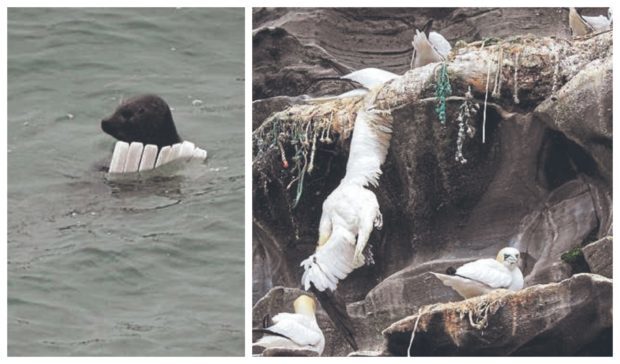An international nature campaigner has described marine litter along Shetland’s coastline as the worse he has seen “anywhere in the world”.
Sean Whyte, who is known for his worldwide work in protecting orangutans, said that while he was in “awe every day of the spectacular scenery and wildlife” on the island’s, the amount of rubbish washed up on Shetland’s beaches was “horrific”.
Mr Whyte was visiting the isles as part of group of eight who are keen on birds, but also nature in general.
He said: “On closer inspection what saddened and disappointed me was the sight on nearly every beach or cove we visited of rubbish, heaps of it – marine pollution.
“The worst I have ever seen anywhere in the world. It was so bad on Westing Beach our group carried out a ‘flash’ beach clean.”
Their visit came just weeks after the annual Voar Redd Up across Shetland and its coastline, as well as the Muckle Gadderie roadside clean-up.
The Redd Up, organised by Shetland Amenity Trust, is the UK’s most successful community litter pick-up and is now in its 31st year.
Mr Whyte said the group saw evidence of gannets getting their legs caught in netting which was used by the birds for nest material.
He added: “Literally on every beach we saw hundreds of pieces of green plastic twine/string. Often it was cut in lengths of 15 to 30 centimetres.
“I can only hope someone in Shetland will get a grip of this marine pollution before it is too late and you lose not only your wildlife, but visitors as well.
“Who wants to see otherwise beautiful beaches covered in litter? As I say, it was really great to see such wonderful scenery, great roads, and clearly a society benefitting from the oil industry.
“So why do Shetlanders permit your beaches and the seas around you to be so badly polluted? You can and should blame, shame and name others for dumping it in the first place, but there is no excuse for not clearing it up, is there?”
An exhibition of wildlife photography currently being held in Hillswick, meanwhile, was inspired by a haunting photo of a dead minke whale on a Nesting beach surrounded by plastic.
Locals have also started taking part in the two-minute beach clean initiative, which encourages people to quickly give beaches a tidy up and share what they have collected on social media to spread the word.
